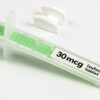Safe Drugs recently approved by the FDA — within the last ten years — may turn out not to be safe or effective. How can this be? And, how can you ensure the drugs you take are safe and effective?
To be clear, the FDA only approves drugs that it finds to be safe and effective. But it bases its approval on limited data. So what might appear to be safe and effective at the drug approval stage may turn out not to be.
To get a drug approved, pharmaceutical companies must conduct clinical trials that show the drug is safe and works better than a placebo. But, clinical trials are usually performed on a small cohort of people, a tiny fraction of the number of people who will end up taking the drug.
Often the people in the clinical trials are not elderly or children or otherwise like the people who are eventually prescribed the drug. As a result, in the real world, outside of the clinical trials setting, the drug may be ineffective or, worse still, dangerous for some people who take it. Drug safety is a big issue.
Sometimes, a drug’s potentially dangerous side effects may only become evident after six months or a year of a person taking it. But, a clinical trial may last for only six months. And, about 10 percent of the time, a drug may be prescribed for off-label use. When prescribed off-label, for a different condition from which it was tested and approved by the FDA for, people may experience dangerous side effects.
Keep in mind that peer-reviewed papers showing the value of a drug for a particular condition may be biased. Too often, the papers’ authors have financial ties to the drug industry.
Unfortunately, the FDA does not do the job it needs to do monitoring drugs after they are approved and publicly reporting their side effects. Indeed, because it is very hard to definitively prove that a side effect stemmed from a particular drug, medications with dangerous side effects may not be pulled from the market for many years. Even warnings about these side effects may not be published.
What can you do for be sure taking safe drugs?
- Choose your doctors carefully. Make sure that your doctors listen to you and take the time to know you.
- At each doctor’s visit, question whether you still need to be taking the prescription drugs your doctor has prescribed or whether it is possible to stop taking one or more of them.
- Check to see whether your doctor is taking money from drug companies on Dollars for Docs. If so, consider talking to your doctor about that in connection with the drugs your doctor has prescribed for you.
- If there’s a generic substitute for the drugs you take or a lower-cost alternative, ask your about switching to that drug.
- If a drug you are taking was recently approved by the FDA, ask about side effects and whether there is an older drug you could be taking instead. With an older drug, you have a better sense of the drug’s safety and usually pay less for it.
Diane Archer is founder and president of JustCareUSA, a digital media enterprise promoting the health and economic security of boomers and older adults.
This article originally appeared on JustCareUSA. Republished with permission.
By Diane Archer
JustCareUSA






